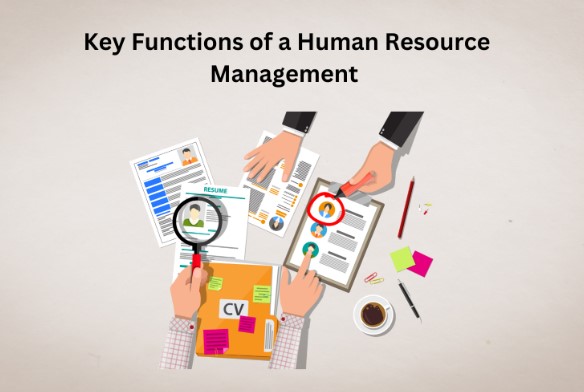In a dynamic landscape of modern organisations, Human Resource Management plays a pivotal role in maximising the potential of an organisations most valuable assets, its people. From talent acquisition and development to performance management and employee relations.
Human Resource Management encompasses a numerous of functions essential for nurturing a motivated, engaged, high performing workforce. In this comprehensive blog, we delve into the fundamental Functions of Human Resource Management, and the Human Resource Qualifications required for the success in the field and the transformative impact of strategic Human Resource practices on organisation success.
Human Resource Qualifications
To become a Human Resource Manager candidate must have a bachelor’s degree or equivalent degree. Before applying for the position of HR candidate need a remarkable amount of experience. So, work as a Junior HR Manager or HR trainee.
Although, certifications are not mandatory for becoming a Human Resource Manager, they are creditable add-ons to your resume. Also, certification courses help to gain in-depth knowledge and skills about the industry. Then keep applying for the position of Human Resource Manager.
Key Functions of a Human Resource Management
Human Resource Planning
The first function of Human Resource Management is knowing the future needs of the company. What kind of people does the organisation require, and how many? Understanding this will impacts requirement, selection, performance handling, learning development and all other Human Resource Management functions.
Requirement and Selection
One of the important functions in Human Resource Management is selecting a suitable candidate for the organisation. The requirement process is attracting a qualified candidate for the role and choosing a best candidate among them for the organisation. Each candidate’s contribution is important for growth of the company. So, selecting a right candidate for the organisation plays a vital role in Human Resource Management.
Performance Management
Performance Management is an essential function in Human Resource Management. It ensures that employees stay productive and engaged. 360-degree feedback system is beneficial for delivering feedback. This system is used to estimate employee’s performance by colleagues, team leaders, and sometimes even from customers.
Job Analysis
As part of job analysis, information is gathered and analysed about the tasks that need to be done, the people who do them, and the environments where they are done. This method is used to decide where jobs will be placed.
Rewards and Recognition
Rewarding and recognising of employee’s work is another important Human Resource Management function. This includes increasing their salary, career opportunities, promotion and a gratifying work-life balance.
Learning and Development
Learning and Development is a constant process of motivating the professional development of employees. It consists of analysing of skills gaps and creating training programs, that allows increased performance. By offering them training courses, online learning and development activities.
Personal Well-being
Personal well-being includes encouraging physical and mental health, financial security and career satisfaction. Human Resource Management needs to identify the problem areas, planning a well-being program.
Health and Safety
Human Resource Management plays a vital role in taking care of employees’ health and safety responsibilities.
Administrative Responsibilities
Employees should contact first Human Resource Management for any HR related queries like contract, requirement paper works and starting package.
Career Planning
One of the important Human Resource Management is Career Planning. HRM can recognise employee’s ability, strength and knowledge. This helps the HRM to place the employees where they can utilise their skills and knowledge effectively.
Conclusion
HRM is the backbone of organisational success. It encompasses various functions to maximise the workforce’s potential and organisational success. By investing in qualified HR professionals and strategic HR practices, organisations can effectively recruit, develop, and retain top talents and function for organisational success.

